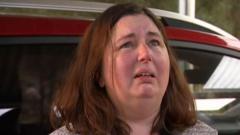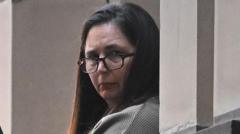With increasing patient fees and severe doctor shortages, Australians are questioning the viability of their universal healthcare system, prompting urgent calls for reform ahead of the upcoming election.
Australia’s Healthcare Crisis: Is Universal Care Beyond Repair?

Australia’s Healthcare Crisis: Is Universal Care Beyond Repair?
A deep dive into the challenges facing Australia’s universal healthcare system as the nation heads towards a crucial election.
Australia's universal healthcare system is at a breaking point, revealing cracks throughout the venerable system. The picturesque town of Streaky Bay, South Australia, symbolizes the issues plaguing the national health landscape. Here, the sole permanent doctor, Dr. Victoria Bradley, juggles both hospital duties and a general practice, leading to severe burnout and ultimately, her decision to leave. Her departure highlighted the fragile state of healthcare in the region, plunging local residents into a crisis of access.
Years of inadequate government funding have led to a critical shortage of healthcare professionals across the nation, causing wait times to grow alarmingly long and forcing doctors to charge escalating fees. The promise of a universal healthcare system—initially guaranteed by the Medicare scheme enacted four decades ago—has transformed into a struggle for many Australians, who now delay necessary medical care due to costs.
As the nation approaches its election on May 3, healthcare has emerged as a pivotal issue, with both major political parties pledging substantial funding boosts. However, experts contend that these proposals are merely short-term fixes disguised as solutions, while the call for widespread structural reforms grows increasingly urgent.
Personal accounts illustrate the depth of frustration felt by Australians like Renee Elliott, who has had to travel hundreds of kilometers for treatments while Emily Grima, a mother facing chronic health issues, refrains from seeking necessary care due to prohibitive costs. The evolving healthcare scenario showcases striking disparities in the quality and access of services depending largely on socio-economic status, intensifying scrutiny of the government’s role.
The reality is grave: as many as 30% of patients now face unexpected "gap fees" averaging A$40 for basic appointments, and this number likely skews low due to exemptions for vulnerable groups. With local practices shuttering and doctors grappling with insufficient government rebates, the question arises: is it time for Australians to reevaluate the very concept of universal healthcare?
The political landscape is complicated, as both sides offer various plans for reform, yet the public remains largely skeptical of their viability. Whether through entirely new funding models or a revamping of Medicare, stakeholders emphasize that the need for a thorough long-term strategy is critical to avoid entrenching disparities and further disadvantaging the most vulnerable.
As the upcoming election looms, the future of Australia's once-celebrated universal healthcare rests in the balance—whether it can evolve and adapt to the demands of a growing and aging population remains uncertain, leaving communities like Streaky Bay grappling with the reality of affordability and access.
Years of inadequate government funding have led to a critical shortage of healthcare professionals across the nation, causing wait times to grow alarmingly long and forcing doctors to charge escalating fees. The promise of a universal healthcare system—initially guaranteed by the Medicare scheme enacted four decades ago—has transformed into a struggle for many Australians, who now delay necessary medical care due to costs.
As the nation approaches its election on May 3, healthcare has emerged as a pivotal issue, with both major political parties pledging substantial funding boosts. However, experts contend that these proposals are merely short-term fixes disguised as solutions, while the call for widespread structural reforms grows increasingly urgent.
Personal accounts illustrate the depth of frustration felt by Australians like Renee Elliott, who has had to travel hundreds of kilometers for treatments while Emily Grima, a mother facing chronic health issues, refrains from seeking necessary care due to prohibitive costs. The evolving healthcare scenario showcases striking disparities in the quality and access of services depending largely on socio-economic status, intensifying scrutiny of the government’s role.
The reality is grave: as many as 30% of patients now face unexpected "gap fees" averaging A$40 for basic appointments, and this number likely skews low due to exemptions for vulnerable groups. With local practices shuttering and doctors grappling with insufficient government rebates, the question arises: is it time for Australians to reevaluate the very concept of universal healthcare?
The political landscape is complicated, as both sides offer various plans for reform, yet the public remains largely skeptical of their viability. Whether through entirely new funding models or a revamping of Medicare, stakeholders emphasize that the need for a thorough long-term strategy is critical to avoid entrenching disparities and further disadvantaging the most vulnerable.
As the upcoming election looms, the future of Australia's once-celebrated universal healthcare rests in the balance—whether it can evolve and adapt to the demands of a growing and aging population remains uncertain, leaving communities like Streaky Bay grappling with the reality of affordability and access.




















